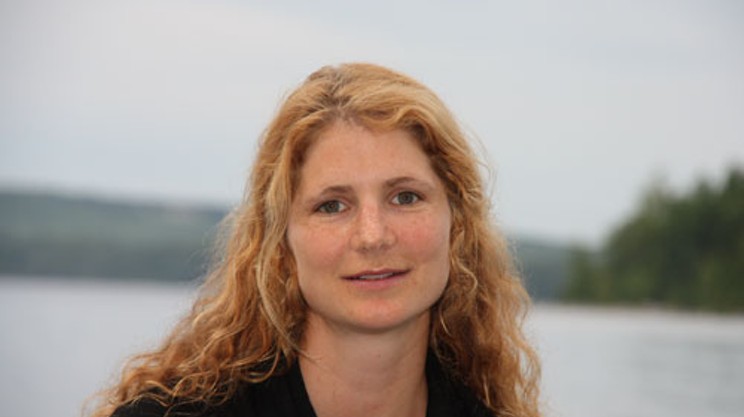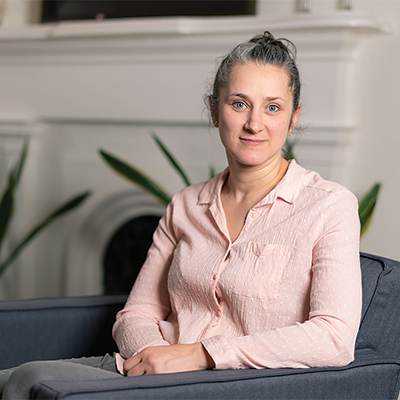In this high literary season, Alexander MacLeod continues to make moves. His first book, a short story collection called Light Lifting, is shortlisted for the Giller Prize. With that recognition in mind, the book's seven stories confront a single, dominant question: "What constitutes a significant action?"
MacLeod, an assistant professor in Saint Mary's University's English and Atlantic Canada Studies programs, believes, "A significant action is something where the stakes are high."
His characters live in different worlds, with their own set of rules, paths and outcomes. Despite their differences, they all make a move---by their own codes and drives, they must act ---and face the realization that they cannot undo that move and must live with its result. "A set of consequences is unfolding now," he says.
MacLeod assumes the mindset, the mix of technical and casual language of two elite school athletes in the opening story, "Miracle Mile." They're 1,500-metre runners heading into a defining race. In "Adult Beginner I," a group of friends, all lifeguards and swimming instructors, close the pool, drink and drive over to the bridge where they'll take turns diving into the Detroit River below. (These stories are set in Windsor, Ontario, where MacLeod grew up, and surrounding areas. The 38-year-old also went to school in Inverness County, Cape Breton, when his father, the writer Alistair MacLeod, was on sabbatical from University of Windsor.) "The Number Three" follows a career autoworker as he forces himself to return to the site of a catastrophic accident that changed his life. "You can be up against it in a lot of different ways," says MacLeod.
Along with an appreciable understanding of the diverse voices of his characters, how they talk and what they believe, and their motivations, why they make the moves they do, MacLeod ably communicates how they move---their physicality. His characters discover "what can and can't be done" by themselves and learn to accept the limitations along with the breakthroughs. "Your body is a finite thing," says MacLeod, quoting his friend and artist Marcel O'Gorman, creator of The Dreadmill: "Embrace your finitude."
Readers may reflect on the moment they realized this in their own lives, or Light Lifting may help bring them closer to that realization. MacLeod expects a range of responses and that includes to the stories' structure, such as the slow revelation of setting or the ending of a story in mid-action: "I can't stand stories when you're one paragraph in and you know how it's going to end."
These stories' beginnings and endings often remind readers that the lives of literary characters, their actions and reaction, choices and consequences, exist and continue outside or beyond the page; their lives don't end when their stories do. This extends from the empathy MacLeod builds in readers. He wants them to understand why his characters believe so strongly in and work so hard at what they do: "The object of someone's care has a supernatural power."
Work is one place where Alexander MacLeod's writing meets that of his father. "It's an underappreciated thing, but it's the essential thing," the son says. "Dad is very, very interested in work, what people do with their time and their energy. Lots of his stories are about people shifting from one kind of work to another, what that means for a family or for a place."
















